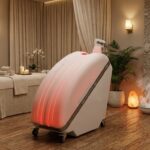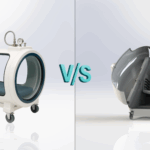These days we can’t be too sure of what we are actually eating. With the amount of preservatives, hormones, processed sugar and biologically enhanced ingredients in food, nothing is what it seems any more. That’s why it is best to stick to raw ingredients. Homemade is better than machine-made.
Unfortunately, this is easier said than done. Our lives have become so busy that we do not have time to be healthy. It’s quicker and easier to buy from the shop than making something from scratch. That is why we have decided to write this blog.
Sugar can be found in almost anything these days. Sugar not only sweetens food but can also help preserve it. So, what is sugar? Sugar has many different names and classifications. Sugars added to food can be called:
- Glucose
- Sucrose
- Maltose
- Corn syrup
- Honey
- Hydrolysed starch
- Invert sugar
- Fructose
- Molasses
Sugar shouldn’t make up more than 5% of your daily diet. An individual over the age of 11, should not eat more than 30g of sugar a day. According to the NHS, “you should read the nutritional information on food labels to see how much sugar the food contains. Remember that sugar has many different names. The nearer the beginning of the ingredient list (above) the sugar is, the more sugar the product contains.
Look for the “Carbohydrates (of which sugars)” figure in the nutrition label to see how much sugar the product contains for every 100g:
- More than 22.5g of total sugars per 100g is high
- 5g of total sugars or less per 100g is low
If the amount of sugars per 100g is between these figures, that’s a medium level of sugars”.
The best way to reduce your sugar intake is to cut the below foods or drinks from your diet:
- Do not drink fizzy drinks or fruit juice – opt for water or diluted juice.
- Do not drink sugar in your tea or coffee – this might sound mad, but tea and coffee tastes a lot better without sugar. You just have to get use to it.
- Do not add sugar to your cereal – most cereals already contain high amounts of sugar, thus adding more makes it worse.
- Check food labels – checking food labels before buying something is a must. Not only should you follow the recommended amount of sugar intake but also take a look at other ingredients like sodium, saturated fat and cholesterol.
Too much sugar can cause a long list of diseases or symptoms. It is best to reduce sugar intake as soon as possible. You can opt for Ozone Therapy to help fight excess sugar in your system and reduce the chances of long term health issues. Ozone Therapy fights diabetes, by improving blood circulation, breaking down excess sugar, neutralising toxins and impurities in the blood, assists in all bodily organs functioning better and breaks down cholesterol. Ozone Therapy also fights depression, obesity, stress, anxiety, candida, gall bladder disease and hormonal problems.
Check out the InfoGraphic below for more on the effects of sugar on your body.
Please feel free to contact us for more information:
Salvagente
+27 (0)72 422 1967
Sign up for our newsletter below to keep up to date on the latest Ozone Therapy News:
[contact-form][contact-field label=’Name’ type=’name’ required=’1’/][contact-field label=’Email’ type=’email’ required=’1’/][/contact-form]

![[InfoGraphic] How Much Sugar Should I Eat?](https://salvagente.co.za/wp-content/uploads/2016/11/InfoGraphic-How-Much-Sugar-Should-I-Eat.jpg)






Leave a Reply